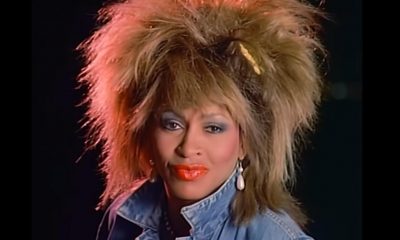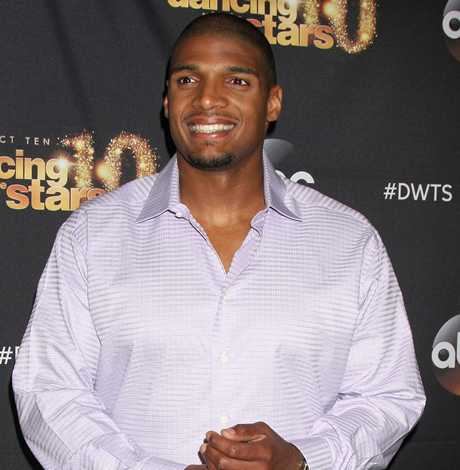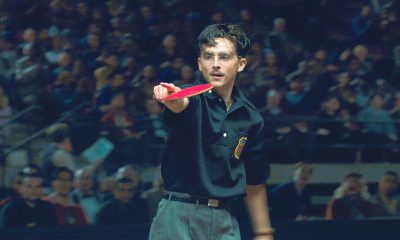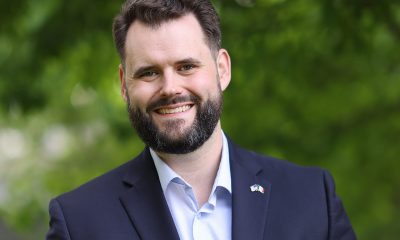Obituary
Howard Bragman, veteran publicist and LGBTQ activist, dies at 66
PR guru died of leukemia on Saturday
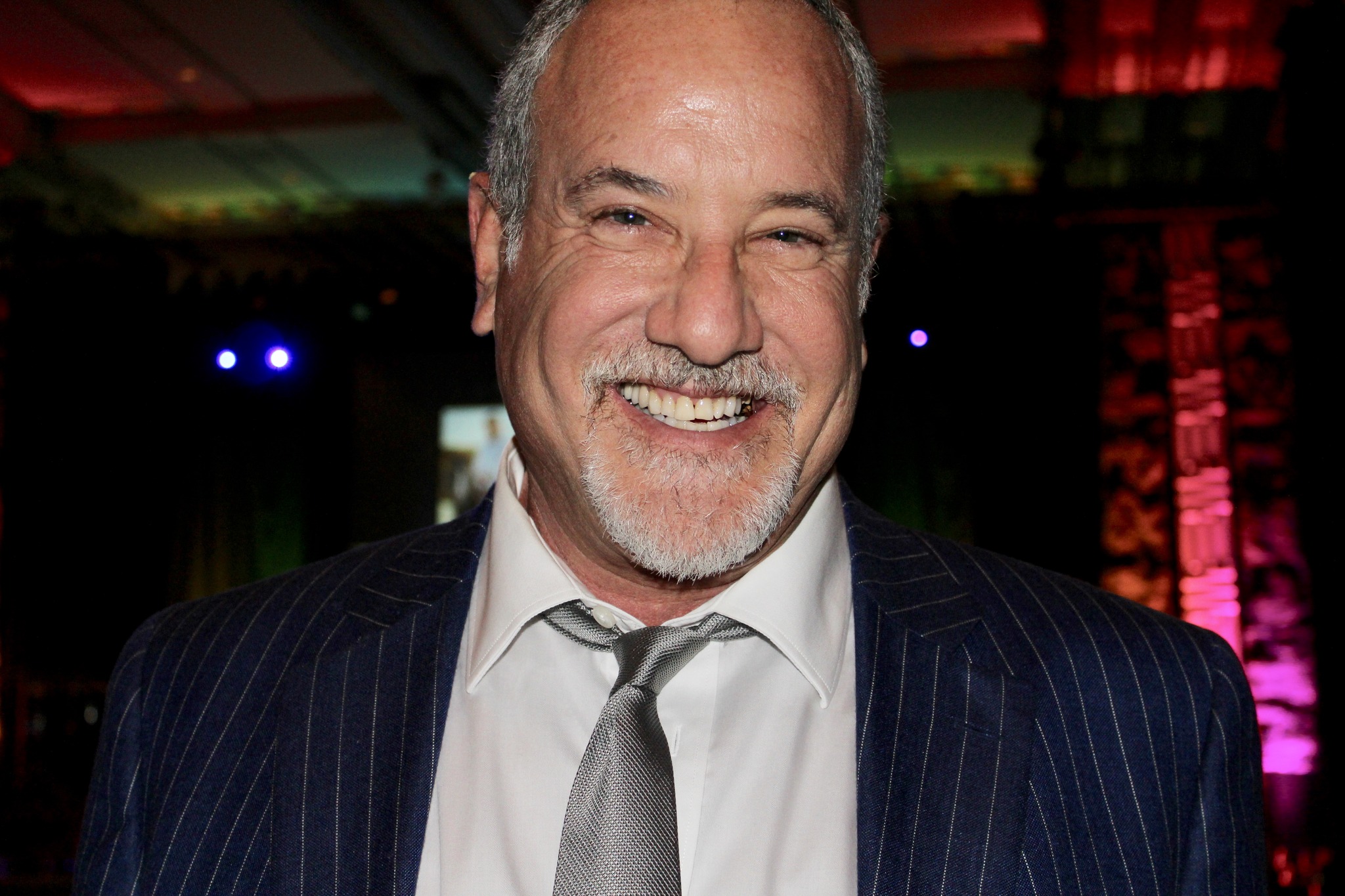
Howard Bragman died Saturday, 13 days before his 67th birthday. With the media focused on the Super Bowl, the horrific earthquake in Turkey, and UFOs in American airspace, Howard’s death has been mostly noted in the entertainment trades with little attention paid to the significant decades-long behind-the-scenes impact he had on his beloved LGBTQ movement.
Thank heavens for TMZ, with whom Howard sometimes worked closely to produce a respectful story about his PR clients, for explaining what happened.
“Howard was set to attend a wedding in Mexico with his partner, Mike Maimone, this month — but wanted to get checked out by his doctor before his travels for what he thought was a gum infection and mild fever,” TMZ reported. “Unfortunately, after testing, Bragman was diagnosed with the most aggressive form of leukemia a person can have — and it progressed ‘explosively.’ Howard was hospitalized on Feb. 2 and died less than two weeks after.”
I can’t imagine the panic at having something you need to get checked and fixed before going on a glorious trip suddenly turn into an inexplicable death sentence. My heart breaks for Howard, his partner and their families, friends and dogs. It also triggers my old PTSD about how we LGBTQ people had to face similar panic during the waves of AIDS crisis when death sentence test results happened almost every day until the miracle drug cocktail became available in 1996.
That’s what made Howard so special, so different from cut-throat manipulative Hollywood “flacks.” This highly regarded, in-demand public relations professional, crisis management expert and the go-to guy for celebrities who wanted to come out of the closet never forgot where he came from.
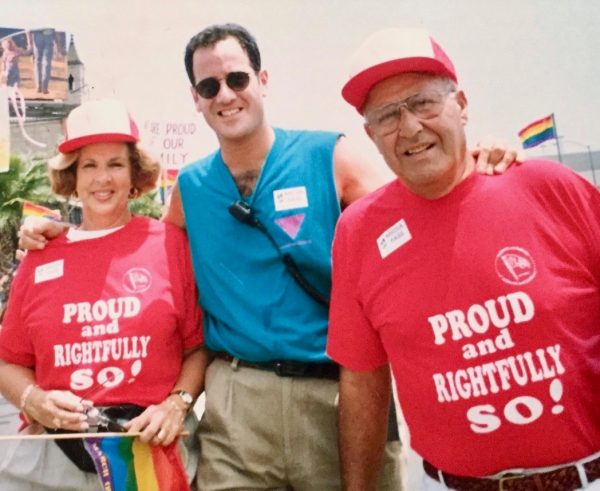
“As a fat, Jewish, gay kid in Flint, Michigan, I always felt like a Martian,” he said in announcing a $1 million endowment in 2021 to establish the Howard Bragman Coming Out Fund at the University of Michigan, operated by the LGBTQ Spectrum Center. “This campus allows you to be yourself. It allows you to spread your wings in the way you want to spread your wings. I tell people, ‘Stay strong, even when it hurts.’ And, I promise, it hurts sometimes. But, there are places that will help you ease the pain sometimes. That’s what the Spectrum Center did. That’s what Michigan did.”
Bragman added: “I don’t care how liberal the school is. I don’t care how accepting and loving your parents are. I don’t care how ‘woke’ the times are. Coming out is this most personal of journeys, and it’s a challenging journey. It’s so important for students to know they are not alone.”
I met Howard in 1989 when I was just starting in “gay” journalism and he had just co-founded Bragman Nyman Cafarelli. He dressed well but he was funny, down-to-earth and unpretentious. He sincerely cared about the people he was advising — from the rich celebrities to AIDS organizations he served pro bono. He was also very good about reaching out to the gay press, which is how I got my first introduction into the issue of the federal government’s ban on gays and lesbians serving openly in the U.S. military.
One of Howard’s first pro bono clients was Naval Academy midshipman Joe Steffan who was forced to resign six weeks before graduation because he revealed that he was gay.
Howard, gay San Francisco Chronicle journalist and fellow 12 Stepper Randy Shilts and I talked about this, among other issues, walking our dogs in a large dog park off Mulholland Boulevard. Randy later wrote about Howard in his opus “Conduct Unbecoming: Lesbians and Gays in the U.S. Military Vietnam to the Persian Gulf,” published in 1993. (Randy died of AIDS the following year. He was 42.)
After filing his lawsuit in District Court on Dec. 29, 1988, challenging the constitutionality of the gay ban, Steffan and his Lambda Legal attorneys met with reporters, who Steffan was surprised to find were supportive. Howard signed on late in 1989.
“Bragman had thoroughly impeccable professional credentials,” Randy wrote. “He had been vice president of Burson-Marsteller before launching his own public relations business in Beverly Hills. His client roster included L.A. Gear, the trendy shoe manufacturer, and numerous entertainment celebrities. At 33, he was also young enough to be comfortable being openly gay and felt obliged to devote a portion of his time and talent to support the gay movement. In Steffen, Bragman saw a man much like himself, a gay professional rather than a professional gay, but someone also committed to diminishing the prejudice gays faces in their daily lives. By late 1989, largely due to Bragman’s efforts, Joe Steffen would become the most visible gay person in America.”
That AIDS hung like a scrim over much of heterosexual thinking during the AIDS years became accidentally evident in 1991 during the long course of Steffen’s case.
“A Federal District judge ruled today that the military’s ban on homosexuals in the armed forces was justified to prevent the spread of AIDS,” Eric Schmitt wrote in the New York Times on Dec. 10, 1991. “Other Federal courts have upheld the Pentagon’s ban, but the 35-page ruling issued today by Judge Oliver Gasch of the United States District Court for the District of Columbia is unusual for its reasoning. Neither the Defense Department nor the plaintiff, a gay midshipman who sued the United States Naval Academy over discrimination against homosexuals, raised the issue of AIDS. But Judge Gasch said the Government’s policy of excluding homosexuals ‘is rational in that it is directed, in part, at preventing those who are at the greatest risk of dying of AIDS from serving.’”
In his tribute to Howard, Cyd Zeigler, co-founder of Outsports.com, notes that grappling with the stigma of AIDS over all those years, helped build his career.
“Howard Bragman wasn’t just a publicist to the stars. He was an important trailblazer for the LGBT community who fought tirelessly for thoughtful, fair coverage of gay and lesbian people in sports and entertainment. And he was a dear friend,” Zeigler wrote, noting how Howard helped gay former NFL player Esera Tuaolo come out publicly in 2002 and, with Zeigler in 2006, former NBA player John Amaechi and subsequently athletes such as WNBA player Sheryl Swoopes, golfer Rosie Jones and most famously, University of Missouri defensive player Michael Sam as he prepared for the NFL Draft.
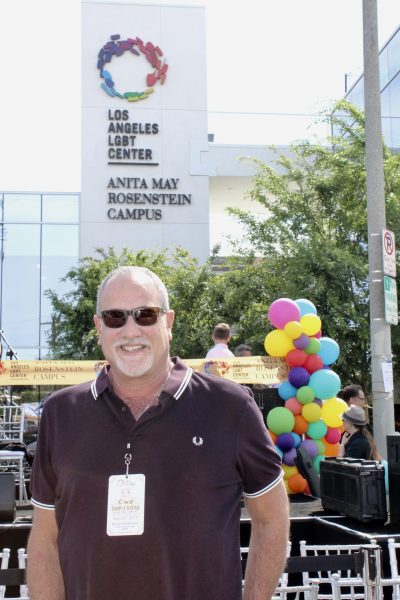
“The truth is always what you got from Howard,” Zeigler wrote. “While his job was often crisis management when stars made mistakes, his general approach was to tackle the issue head-on. Howard wasn’t a bullshitter, he’d tell you what he thinks and he had the confidence and fortitude to stick to his guns. As a gay man in Hollywood in the 80s and 90s during the AIDS epidemic, it was that strength that helped him build a career even as stigma built.”
Howard, who subsequently launched Fifteen Minutes and later La Brea Media, represented a slew of famous folks and often appeared as an on-air expert for TV programs. In 1991, he helped bring out actor Dick Sargent, the second Darrin and loving husband to Elizabeth Montgomery in “Bewitched” and “Family Ties” mom Meredith Baxter before she was outed in the tabloids. Howard also helped Chaz Bono navigate his very public transgender transition.
For me, one of my most poignant coming out interviews was with Chely Wright. “Country star Chely Wright is celebrating her birthday of choice: she officially came out as gay in People magazine and NBC’s Today Show. Her coming out coincides with the release of her new extraordinary memoir Like Me: Confessions of a Heartland Country Singer and her latest release, Lifted off the Ground, (iTunes) her first album in five years,” I wrote in the Huffington Post July 6, 2010. “The public’s attention will no doubt focus on Wright’s revelation about being gay, something she denied when confronted about rumors by country singer John Rich. But in her book and album — and in her interview with me — Wright talks about a more universal truth: how the self-loathing that comes from keeping a shameful secret can lead to despair and thoughts of suicide — and how telling that secret can lead to a kind of glorious liberation.”
Howard and I didn’t always agree. He considered himself a bridge-builder and seemed convinced that both Isaiah Washington — who described fellow actor T.R. Knight as a “faggot” on the set of Grey’s Anatomy — and San Diego real estate developer and Manchester Grand Hyatt and the Grand del Mar Resort hotelier Doug Manchester — who gave $125,000 to the floundering Yes on 8 campaign, spurring it on to electoral victory in 2008 — were not homophobic but rather men who had made mistakes and wanted to make amends. He thought the gay community should get to a place of forgiveness and not be mean and vindictive. I had real trouble with that.
But Howard also offered that kernel of painful truth that must be heard — whether we like it or not. “Despite Mr. Manchester’s donations, what our own community needs to understand is that we lost Prop. 8 because of the decisions we made — because of the ways we campaigned and didn’t campaign. The only way we’re ever going to win is by reaching into the middle to change hearts and minds,” he told Advocate.com. Howard was not alone in that assessment.
On a personal note, Howard and I became friends over the years, recognizing in each other the deep and soulful commitment to our people. He was one of the first people to reach out to me after Frontiers decided I was too old to be the news editor for LA’s then-most important LGBTQ publication. It was a kindness I will never forget.
Howard Bragman was a mainstream star. But it is critical that we not forget or that we find out here and by researching our own history how instrumental he was in guiding those living in glass closets to come out and energize their own authentic selves in the LGBTQ movement.
Here’s a link to the Norman Lear Center sponsored panel “The Glass Closet: In and Out in Hollywood and Washington” Sept. 27, 2007, at USC’s Annenberg School for Communication. The panel was moderated by Bragman, with panelists ASC Professor Larry Gross and journalists Ray Richmond, Greg Hernandez, Karen Ocamb, Shana Krochmal, David Ehrenstein and actor Wilson Cruz.
WATCH: “The Glass Closet: In and Out in Hollywood and Washington”
******************************
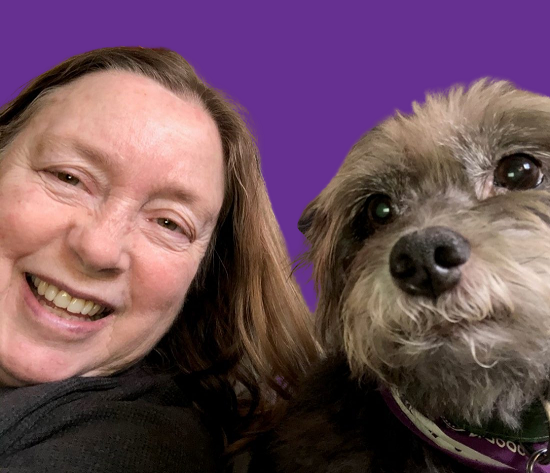
Karen Ocamb is the former news editor of the Los Angeles Blade. She is an award-winning journalist who, upon graduating from Skidmore College, started her professional career at CBS News in New York.
Ocamb started in LGBTQ media in the late 1980s after more than 100 friends died from AIDS. She covered the spectrum of the LGBTQ movement for equality until June 2020, including pressing for LGBTQ data collection during the COVID pandemic.
Since leaving the Los Angeles Blade Ocamb joined Public Justice in March of 2021 to advocate for civil rights and social, economic, and racial justice issues.
She lives in West Hollywood, Calif., with her 15-year-old Pepper.
******************************
District of Columbia
Acclaimed bisexual activist, author Loraine Hutchins dies at 77
Lifelong D.C.-area resident was LGBTQ rights advocate, sex educator
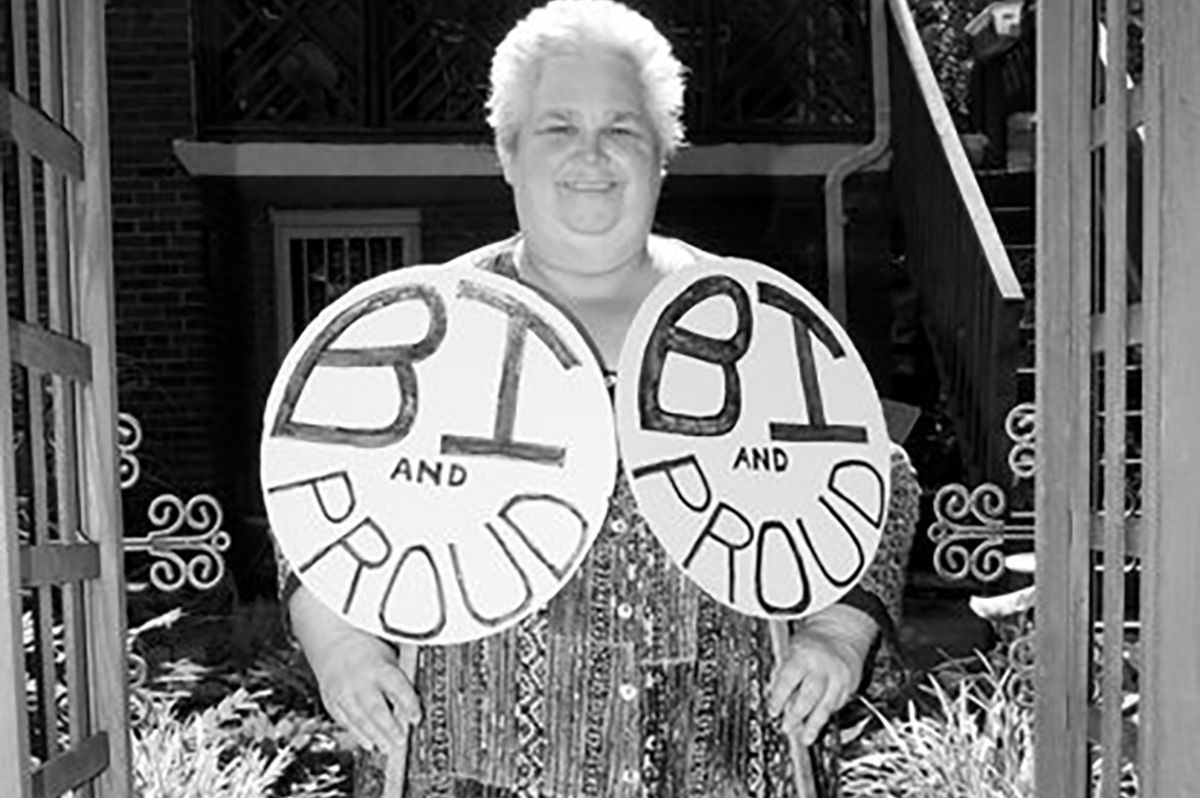
Loraine Adele Hutchins, a nationally known and acclaimed advocate for bisexual and LGBTQ rights, co-author and editor of a groundbreaking book on bisexuality, and who taught courses in sexuality, and women’s and LGBTQ studies at a community college in Maryland, died Nov. 19 from complications related to cancer. She was 77.
Hutchins, who told the Washington Blade in a 2023 interview that she self-identified as a bisexual woman, is credited with playing a lead role in advocating for the rights of bisexual people on a local, state, and national level as well as with LGBTQ organizations, many of which bi activists have said were ignoring the needs of the bi community up until recent years.
“Throughout her life, Loraine dedicated herself to working and speaking for those who might not be otherwise heard,” her sister, Rebecca Hutchins, said in a family write-up on Loraine Hutchins’s life and career.
Born in Washington, D.C., and raised in Takoma Park, Md., Rebecca Hutchins said her sister embraced their parents’ involvement in the U.S. civil rights movement.
“She was a child of the ‘60s and proudly recalls attending Martin Luther King’s ‘I Have a Dream’ speech with her mother on the D.C. Mall,” she says in her write-up. “She was steeped in the civil rights movement, was a member of the Student Non-Violent Coordinating Committee, and was proud to say she had an FBI record.”
The write-up says Hutchins received a bachelor’s degree from Shimer College in Mount Carroll, Ill. in 1970, and a Ph.D. in 2001 from Union Institute. It says she was also a graduate of the Institute for the Advanced Study of Human Sexuality’s Sexological Bodyworkers certification training program.
The family write-up says in the 1970s Hutchins became involved with efforts to assist tenants, including immigrant tenants, in affordable housing programs in D.C.’s Adams Morgan neighborhood.
“In 1991, she co-authored the groundbreaking book, ‘Bi Any Other Name: Bisexual People SPEAK OUT’ with friend and colleague Lani Ka’ahumanu,” the write-up says. It notes that the acclaimed book has been republished three times and in 2007 it was published in Taiwan in Mandarin.
According to the write-up, Hutchins delivered the keynote address in June 2006 at the Ninth International Conference on Bisexuality, Gender and Sexual Diversity. In October 2009, D.C.’s Rainbow History Project honored her as one of its Community Pioneers for her activist work.
“Loraine is one of the few people who has explained, defended and championed bisexuality and made sure the “B” got into the LGBT acronym,” the Rainbow History Project says on its website in a 2009 statement. “Sensitivity to bisexual issues, civil rights, and social justice issues is Loraine’s life work,” the statement concludes.
The write-up by her sister says that up until the time of her retirement, Hutchins taught women’s and LGBT studies as well as health issues in sexuality at Montgomery Community College and Towson University in Maryland.
“She was a friend and mentor to many in the LGBTQ community,” it says. “She thoroughly enjoyed adversarial banter on the many topics she held dear: sexuality, freedom of speech, civil rights, needs and support of those with disabilities, especially in the area of mobility, assisted housing, liberal politics and many other causes,” it points out.
She retired to the Friends House community in Sandy Springs, Md., where she continued her activism, the write-up concludes.
Hutchins was among several prominent bisexual activists interviewed by the Washington Blade at the time of her retirement in June 2023 for a story on the status of the bisexual rights movement. She noted that, among other things, in her role as co-founder the organizations BiNet USA and the Alliance of Multicultural Bisexuals, she joined her bi colleagues in prodding national LGBTQ advocacy organizations to improve their advocacy work for bisexuals, which Hutchins said had been inadequate in the past but had been improving in recent years.
Hutchins is survived by her sister, Rebecca Hutchins; her husband, Dave Lohman; nephew, Corey Lohman and his wife Teah Duvall Lohman; and cousins, the family write-up says.
It says a private memorial service was scheduled for December and a public memorial service recognizing her contributions to the LGBTQ community will be held in the spring of 2026.
Obituary
Acclaimed disability rights advocate Thomas Mangrum dies at 61
Lifelong D.C. resident also served as ‘cherished’ Capital Pride volunteer
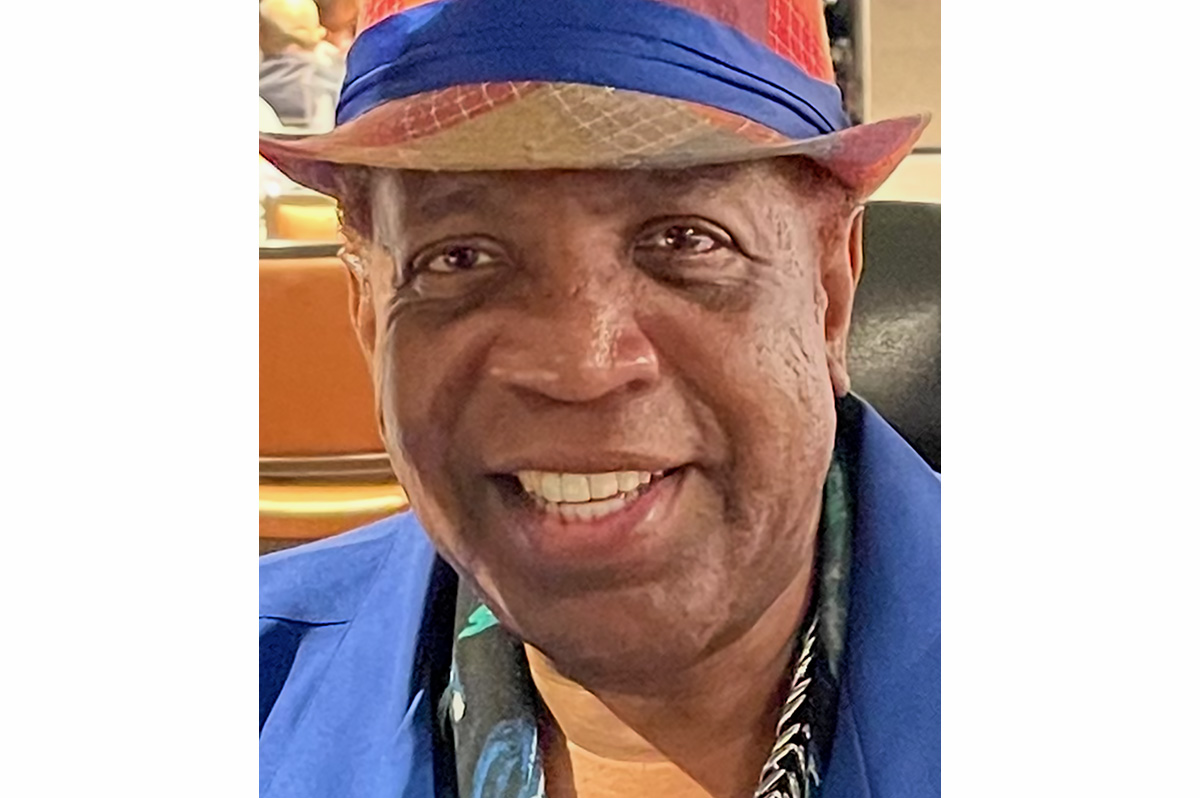
L. Thomas Magnum Jr., a lifelong D.C. resident, widely recognized and acclaimed advocate for people with disabilities, and LGBTQ rights activist involved in the city’s Capital Pride events, died Sept. 17 from complications related to stomach cancer. He was 61.
A statement released by Project ACTION!, a local disability advocacy organization for which Mangrum served for 15 years as co-president, says he worked for more than 20 years for the D.C.-based Maurice Electric Supply company before retiring in 2002 and devoting his efforts to disability-related projects and programs.
Phylis Holton, an official with the D.C. organization Quality Trust For Individuals With Disabilities and a longtime friend of Mangrum, said as a person with a developmental disability Mangrum devoted his life to supporting others with all forms of disabilities. She said that due to a separate spinal condition, Mangrum used a wheelchair for about 15 years prior to his passing.
Holton said Mangrum had a mild form of developmental disability, which the U.S. Centers for Disease Control and Prevention describes as “a group of conditions due to an impairment in physical, learning, language or behavior areas” that usually develops before a child is born during pregnancy.
Holton said Mangrum was an active member of Project ACTION! for 15 years prior to the 15 years he served as the organization’s co-president.
“He traveled nationally and presented at conferences, was featured on webinars and podcasts on a variety of topics related to self-advocacy, accessibility, equality, and more,” Holton told the Washington Blade in a statement.
“He shared his lived experience of being a Black man with a disability, and being gay, and how it impacted how he was treated in the community,” Holton said. “He was a strong advocate and co-facilitated trainings for independent advocacy organizations that Thomas supported and was a key advocate in their advocacy work,” she said.
Holton added, “He would answer a late request to train a group of attorneys, present at a meeting or testify before City Council or meet with an advocacy group to advance pending legislation that impacted people with disabilities.”
She said Mangrum also enjoyed participating in LGBTQ Pride events and last year traveled to the New York Pride events. According to Holton, he looked forward to participating in WorldPride 2025 events earlier this year in D.C. “but his illness prevented him from doing so.”
In a statement announcing Mangrum’s passing, Capital Pride Alliance, the group that organizes D.C.’s annual LGBTQ Pride events and served as the lead organizer of WorldPride 2025 in D.C., called Mangrum a “cherished volunteer” for D.C. Pride events.
June Crenshaw, the Capital Pride Alliance Deputy Director, said Mangrum served as a volunteer for D.C.’s LGBTQ Pride events “for many years” and was involved in many of the planning activities for WorldPride before his illness prevented him from participating in WorldPride earlier this year.
“He certainly in my interaction with him made me very aware of making sure that Capital Pride was thinking about accessibility always, and making sure that we had a welcoming, affirming accessible space for participants and staff with disabilities,” Crenshaw said.
In its statement on Mangrum’s career and accomplishments in life, Project ACTION! says he helped to advance the needs of people with disabilities through service on many boards and commissions. Among them were Lifeline Partnership, the D.C. Developmental Disabilities Council, the D.C. Center for Independent Living, the Washington Metropolitan Area Transportation Authority’s Accountability Advisory Committee, “and many more.”
“His leadership, passion, and unwavering commitment to equity and inclusion made a lasting impact on all who had the privilege to know and work alongside him,” the statement says.
It adds, “Thomas showed us the power of perseverance, courage, and the importance of standing together. His spirit will continue to guide us and strengthen our community for generations to come.”
A funeral for Mangrum was scheduled for Oct. 9, at D.C.’s Westminster Presbyterian Church at 400 I Street, S.W., with a viewing at 10 a.m. followed by a program at 11 a.m. A burial was scheduled to take place that same day at Heritage Memorial Cemetery at 13472 Poplar Hill Road in Waldorf, Md.
Holton said in lieu of flowers, donations may be made to Project ACTION! for a Celebration of Life and advocacy scholarship in Mangrum’s name. A date and location for the Celebration of Life for Mangrum was to be announced later, according to Project ACTION!
Obituary
Susan Xenarios, crime victim advocate, long-time LGBTQ ally, dies at 79
‘Susan was a force of nature, a mentor’
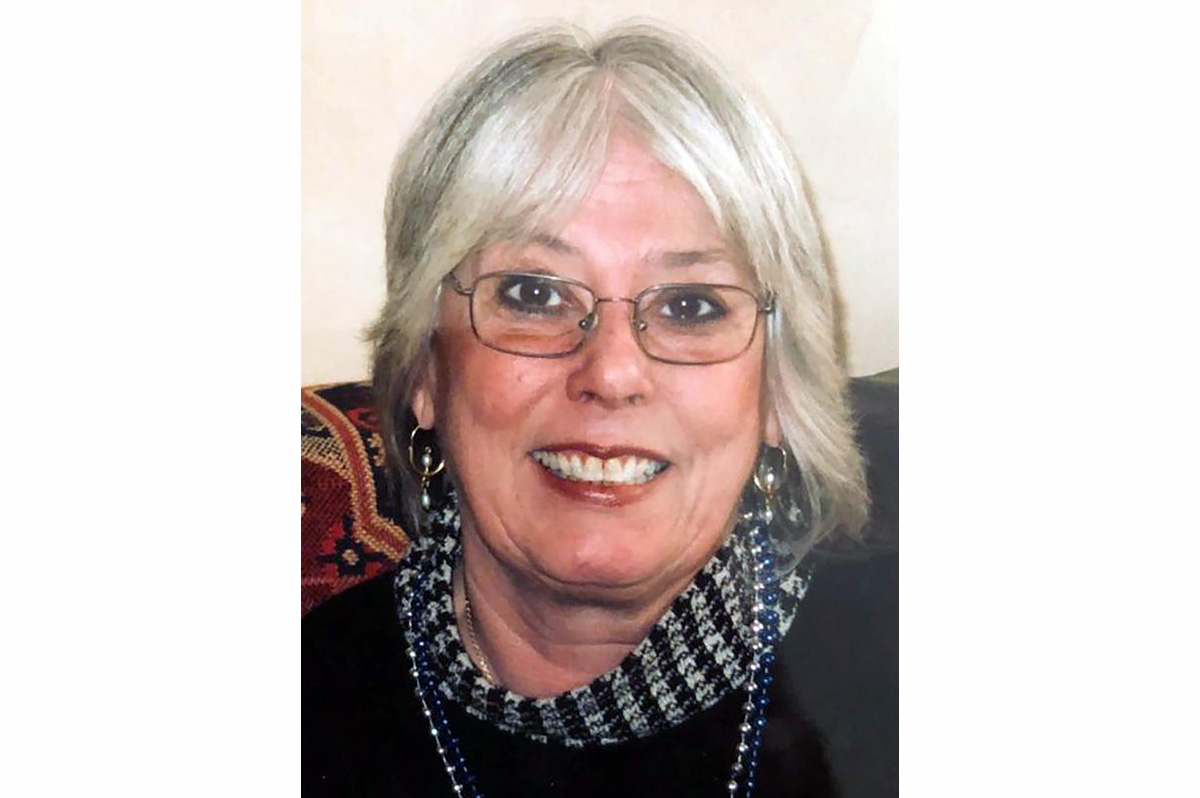
Susan Xenarios, LCSW, a visionary and dynamic leader of New York’s crime victim movement for 50 years and a courageous ally of the LGBTQ community, died on Sept. 6 in Manhattan. She was 79.
In 1974, an assailant held a knife to Ms. Xenarios’s throat and raped her on a rooftop in Upper Manhattan. At a time when few sexual assault victims spoke out, she began a lifelong, public campaign to improve the care and treatment of survivors and to reform laws and police procedures. Along with her high-profile advocacy, she never stopped counseling individual survivors of crime, pioneering breakthrough therapeutic interventions.
Ms. Xenarios led the creation of New York’s first program to provide assistance to survivors of sexual assault, the state’s first clinical program for male survivors, and the New York Sexual Assault Forensic Examiner (SAFE) Program, which ensures survivor-centered emergency room protocols, including evidence collection. She served as executive director of the Crime Victims Treatment Center in New York City for 40 years (1977 -2017).
Ms. Xenarios also was a driving force behind several state laws to advance the rights of crime survivors, including a 1993 law protecting the confidentiality of rape crisis center communications, the Hate Crimes Act 2000, which included enhanced penalties for hate-motivated crimes, including anti-LGBTQ assaults, and the 2015 “Enough is Enough” law, one of the first laws in the nation to require all colleges to adopt a set of comprehensive procedures for addressing sexual violence on campuses.
“Susan was a force of nature, a mentor, an extraordinary ally to the LGBT community, and a dear friend,” said Bea Hanson, director of the New York State Office of Victim Services, principal deputy director of the federal Office on Violence Against Women during President Barack Obama’s administration (2011-2017), and director of client services of the New York City Gay and Lesbian Anti-Violence Project (1991-1997). “She was a leader in advocating for the rights of sexual assault survivors and all crime victims. She spoke truth to power with a smile on her face and love in her heart. She will be missed.”
“Susan was the greatest champion and friend of LGBT victims of crime there ever was or ever will be,” said Matt Foreman, former executive director of the NYC Gay and Lesbian Anti-Violence Project (1990-1996) and the Empire State Pride Agenda (1996-2003). “She was one of the first to recognize the prevalence of sexual assault against men and she created the first program to help male survivors. When there was enormous pressure to pass a hate crimes law that did not include anti-LGBT offenses, she made sure the larger movement did not abandon us. She understood the harmful effects of having terms like ‘sodomy’ and ‘deviate sexual intercourse’ in New York State law and led the successful drive to purge them from the books. She was so genuinely warm and supportive, I was shocked when I learned that she wasn’t a lesbian.”
A memorial service will be held on Saturday, Sept. 20, at 11 a.m. at West End Collegiate Church, 245 W. 77th St. in Manhattan.

